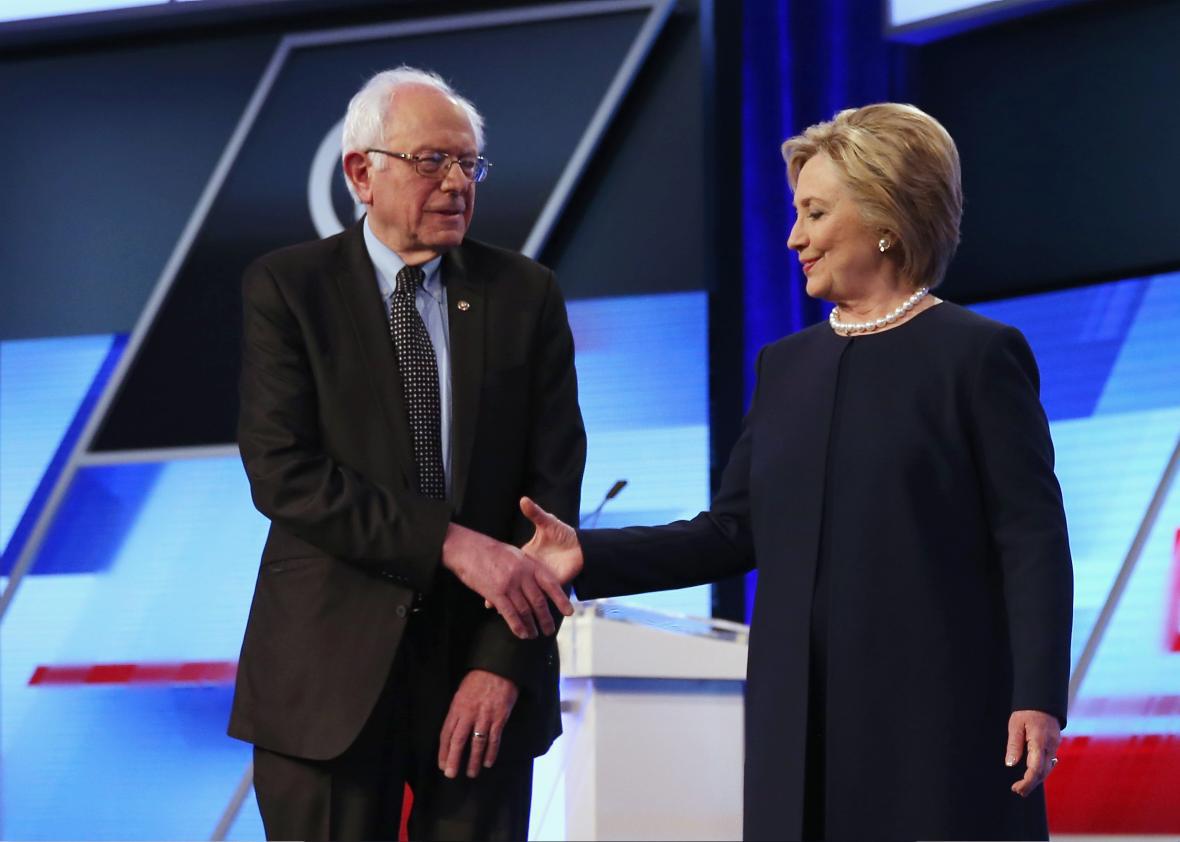Occasionally when I meet someone who gives me a good, strong handshake, thereby communicating his or her (usually his) steadfast belief in the importance of a firm handshake, I will give his hand my customary light quiver and think, Welp, he probably thinks I am weak. Maybe I lack confidence; maybe it’s my underdeveloped upper-body strength; maybe I’m just above such superficialities; but to me, it’s always felt more natural to gently clasp hands—enchanté!—than to squeeze the other person’s with much force.
Now I can blame it on my generation, too. In recent weeks, several news outlets have reported on a study that found that millennials give weak handshakes. More precisely, it was a study on grip strength, published in the Journal of Hand Therapy: Researchers at Winston-Salem State University tested the grips of men and women under 30 using something called a dynamometer, and their results indicated that young people’s hand strength has declined since 1985. The study’s authors asserted that this is probably due to people spending less time working with their hands and more time on their ding-dang cellphones.
The actual study didn’t deal directly with handshake strength, but several outlets made the connection, running photos of handshakes and using headlines like, “Get a grip, young people, your handshakes are weak.” It’s classic “kids today!” nonsense, and like a lot of anti-young-people rhetoric, it has an undercurrent of misogyny. It’s like when older people criticize millennials for always being on their phones: We know you’re mostly talking about women. Or when seemingly well-meaning people and entities advise young women to change the way they talk: Why is the way young women speak any less valid than the way older men talk? The same principle applies here. The idea of a strong handshake is a patriarchal construct. And like the glass ceiling and the disgraceful double standard that allows stars of The Bachelor to get away with way more shenanigans than stars of The Bachelorette, we must dismantle it.
It’s a standard job interviewing tip to practice your handshake and cultivate a strong one. But this silly study—more propaganda from the notorious hand therapy lobby, am I right?—got me thinking how much that advice privileges men, the gender more genetically likely to have powerful hand and arm muscles. What is shaking hands when you get down to it but a primitive ritual to prove to another person that you are … strong, but in a controlled way? After some self-consciousness when I was first out of school, I’ve mostly stopped caring about my grip and stopped wanting to work anywhere that wouldn’t hire me because I had a weak one. I can’t imagine that it’s something that most people care about anymore. But for anyone out there that does: Why not just forget it? As with the issue of how women talk, pay attention to what they say, not how they say it—and definitely not how strong they seemed when they engaged in your macho greeting custom. (Of course, if you are a lawyer or activist fighting for reproductive rights and feel a strong handshake gives you that much more gravitas in your quest for women’s equality, I say, by all means, go for it.)
All this handwringing over handshaking is enough to make a gal wish we lived in Donald Trump’s America already so no one had to shake hands anymore. (Trump is a notorious germophobe.) Or, better yet, maybe in Hillary Clinton’s femocracy, it will be acceptable to greet both male and female professional associates with a quick round of Miss Mary Mack: a little girls’ clapping game reframed as the ultimate lean-in.
